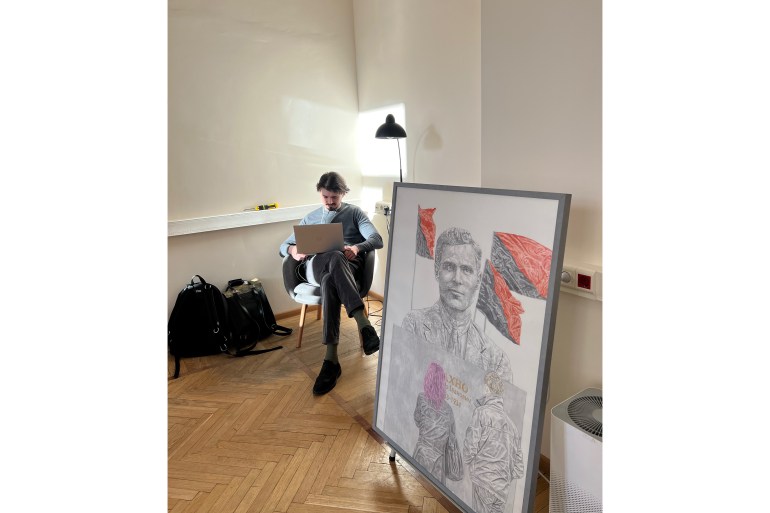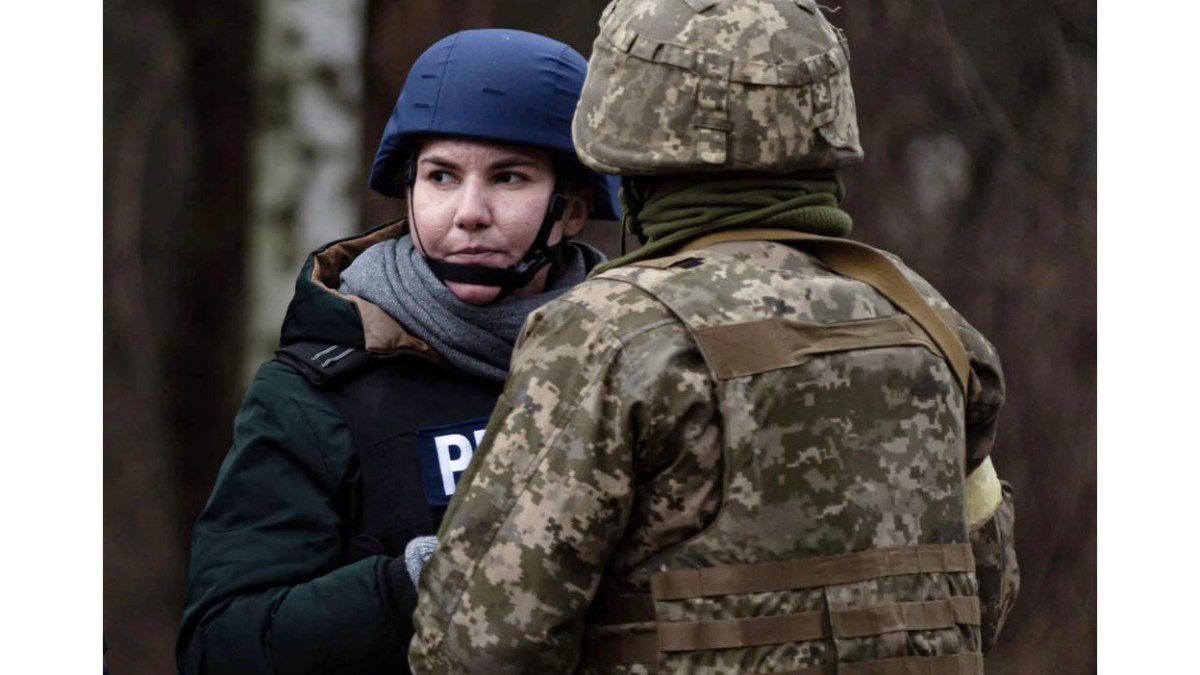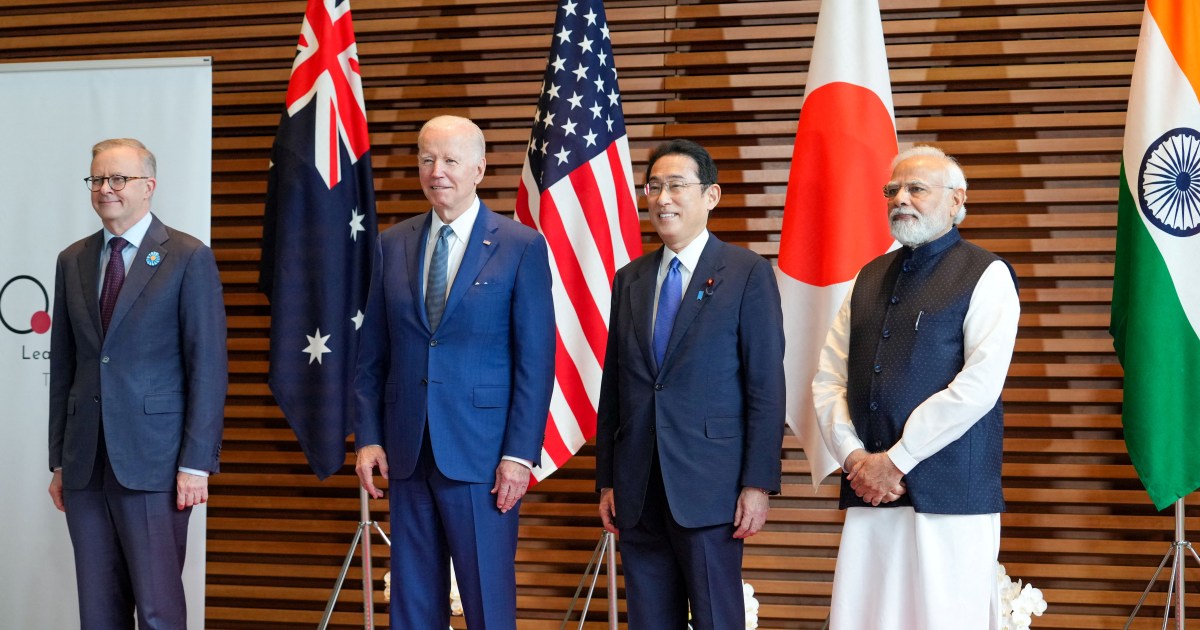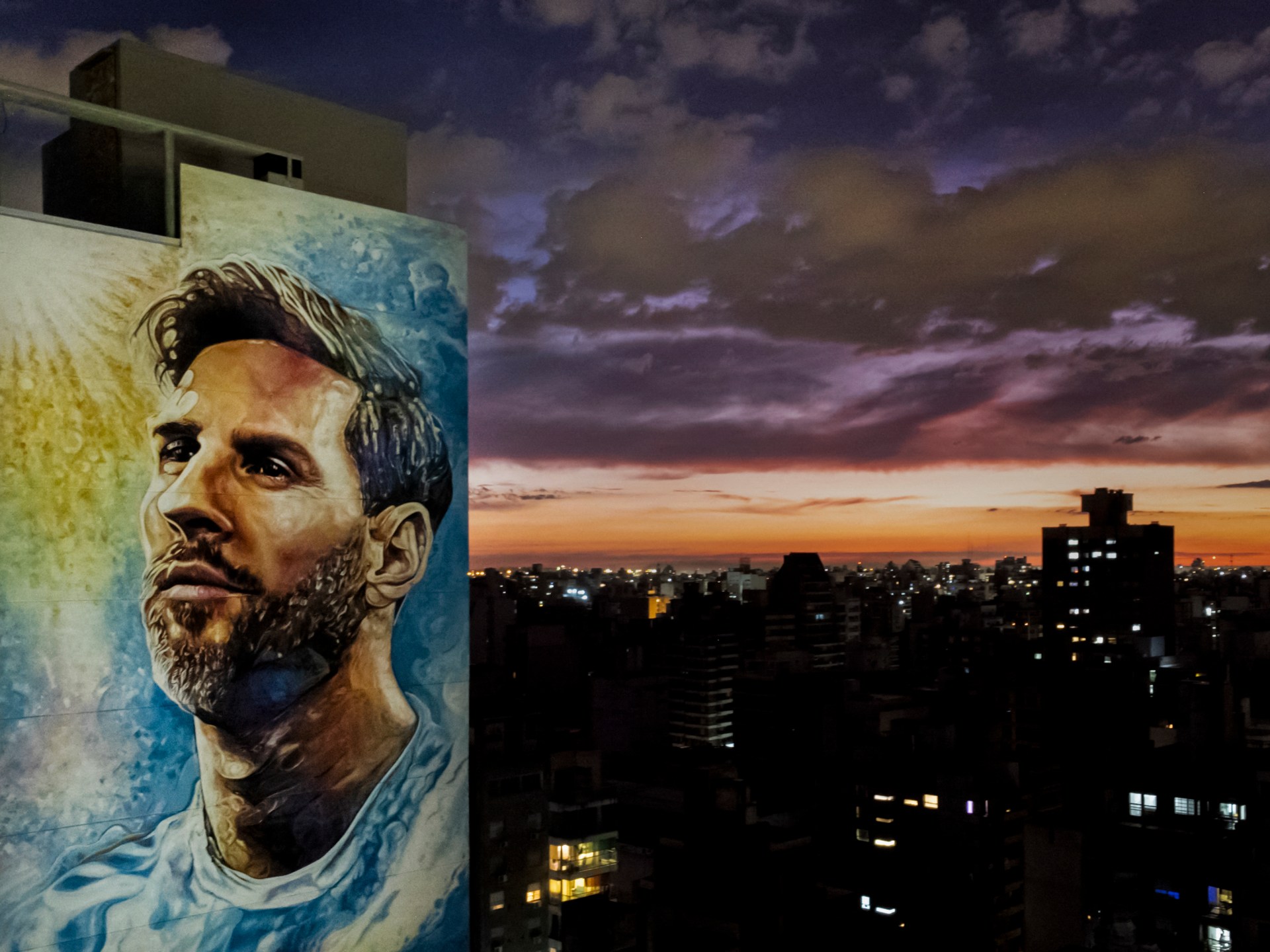Breaking news: How the war impacts Ukraine’s independent media | Russia-Ukraine war News
On Sundays, freelance journalist Tetiana Bezruk would open her laptop and check the court schedule in Kyiv for the week.
A reporter on high-profile anti-corruption cases for Ukrainian and international media, including the investigation into crimes committed against protesters by police during Ukraine’s 2014 Euromaidan revolution, she would scour the list of hearings for potential stories.
But since February 2022, when Russia’s full-scale invasion began, Bezruk has not been to court.
Now, she is a war reporter.
“I decided to cover this war because it is in every aspect of my life,” she told Al Jazeera.
The past year has been an education in front-line reporting, including working from Kharkiv, Dnipro and Kherson, where she witnessed heavy shelling.
“Never in all my assignments have I been so scared physically,” she said.
In December, Kherson oblast was liberated and Bezruk spent time with survivors of the Russian occupation.
“I counted three or four buildings in the village that weren’t destroyed or had their roofs intact,” she said. “These trips hurt me a lot.”

Practical and safety considerations have been learned on the job, such as paying attention to exit routes and having access to a car – crucial for extracting yourself from the front line if something goes wrong.
With its Kyiv office affected by missile attacks on the city, staff at business publication Liga also became war reporters overnight.
The title focused only on war reporting for several months after the full-scale Russian invasion.
“We didn’t have experience covering the war or any special training [at the beginning],” says Yulia Bankova, Liga’s editor-in-chief.
The team quickly sourced helmets and protective equipment from international organisations, learning how to cover war “on the job”.
Bankova also worked with experienced, insured freelance journalists for some front-line reporting.
For Ukrainian journalists with little or no war reporting experience, safety and security is of paramount importance.
According to Ukraine’s Institute of Mass Information, 45 Ukrainian media workers have been killed as a result of the full-scale invasion by Russia and 21 journalists working in Ukraine have been captured and kidnapped by Russian forces.
Internews, a non-profit founded in San Francisco that supports international, independent media, was initially focused on the immediate safety needs of journalists, such as relocating reporters from areas that had suddenly become a front line.
With its Ukrainian partners, Internews brought about 250 flak jackets and helmets as well as 550 tactical first aid kits into the country.
![Summer 2022, the city of Mykolayiv. Together with rescue group inside the residential building that was destroyed by Russian rocket. [Courtesy: Danylo Pavlov]](https://www.aljazeera.com/wp-content/uploads/2023/03/Tetiana_2.jpeg?w=770&resize=770%2C514)
A year later, its work now includes replacing lost or damaged equipment and providing power banks and solar power batteries to help sustain media operations during power outages caused by Russian attacks on electricity and power stations. It has also received requests for satellite internet to help newsrooms stay online.
Independent investigative and culture outlet Zaborona has moved its Kyiv office to a smaller space, so 10 to 12 team members have better access to electricity.
Editor-in-chief Katerina Sergatskova co-founded the 2402 Fund to provide safety and communication equipment and safety, security and reporting training to Ukrainian journalists.
‘Lack of realistic funding’
For many Ukrainian media, there is “a lack of realistic funding to operate” and report on a battlefield dominated by “surveillance, reconnaissance and intelligence”, an international media safety expert who requested anonymity, who has worked in Ukraine for many years, told Al Jazeera.
And according to Gillian McCormack, who leads the Internews team in Ukraine, “A year on, you are also looking at high levels of burnout and stress.”
One Liga team member rescued his wife from occupied Severodonetsk and another spent at least 10 days with his family in a bomb shelter in Chernihiv.
“Almost everyone has their own tragic experience,” said Bankova.
Therapy sessions for staff have been held to address the psychological toll of living with and reporting on the war.
Freelancer Bezruk says being a journalist helps her with the psychological toll. “You can communicate your thoughts; you don’t put it inside of you. You put out your fear, your anxiety.”
As for the commercial aspect of Ukraine’s media industry, an estimated 233 outlets in Ukraine have been forced to close temporarily or completely as a result of the war, whether because of seized or destroyed offices, occupation or economic challenges.
“Right now, it’s difficult to survive,” says McCormack of Internews. “The ad market has taken a real hit.”
Bankova said Liga lost all its advertising in one day – approximately 65 percent of its revenue. It is now heavily reliant on funding from grants and some support from reader subscriptions and donations.
At the same time, in a country dominated by state-run news channels and TV channels owned by oligarchs, Ukraine’s independent media have experienced operating under pressure while holding the powerful to account.
With business models devastated by war and a workforce thinned by safety concerns or as journalists enlist, experts are concerned about the future of the sector.
“During the war, it’s even more important [to have independent media] because Ukraine has a reputation for being corrupt,” said Bankova. “Only the Ukrainian media can cover this corruption.”
The Ukrainian media market has also lost “quality journalists” to international media covering the war, said Bankova.
“Foreign journalists have a big team and insurance, but Ukrainian journalists are not as well protected and do dangerous work on the front line.”
In March 2022, Ukrainian journalist Oleksandra Kuvshynova was killed while working with Fox News.
At the time, concerns were raised that Kuvshynova’s death had been overlooked because an international colleague had died and another was injured in the same attack.
Though treatment of Ukrainian journalists by international media has improved since the beginning of the war, Bankova said she is repeatedly asked by foreign reporters whether she can remain objective being Ukrainian.
“It’s black and white,” she said. “As journalists, we focus on documenting facts and people’s stories, not personal feelings.”
Freelance journalist Bezruk has worked as a “fixer” for international media and said she learned a lot from foreign colleagues with war reporting experience.
In the Kyiv region, she saw mass graves for the first time and watched how a foreign colleague approached the relatives of victims, maintaining professionalism while also dealing with the horror of experiencing the situation firsthand.
Involving Ukrainian journalists in international coverage of the war can provide context and help international media avoid Russian propaganda and disinformation, said Bankova and Zaborona’s Sergatskova.
“We know any city we come to,” said Sergatskova. “We know the history of the buildings destroyed. Russia has been our neighbour our whole lives.”
Unlike international news, Ukraine’s media, in particular local outlets, provide crucial, localised safety information and allow internally displaced people to keep track of home news. It can also provide a lifeline of connection for those living under occupation, said McCormack.
Despite operational challenges, threats to physical and mental safety, and Russia’s alleged targeting of journalists and independent media, Ukraine’s journalists keep going.
“People say they don’t see the sense in being a journalist any more. I’ve never had these thoughts,” said Sergatskova.
“A journalist is one of the most important figures in the war because we can show what is happening. Russia doesn’t want us to see the atrocities it commits. That’s why it’s so important we continue. We have to record it.”





Pingback: read
Pingback: clase azul black bottle price